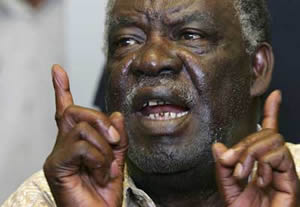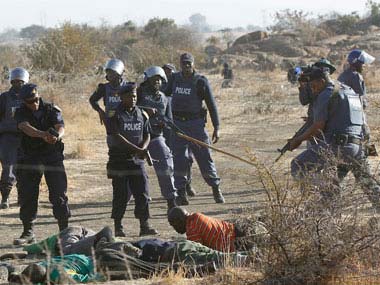A long-dormant border dispute between Malawi and Tanzania has reignited as oil companies push their exploration work deeper into the continent, giving enormous value to regions once ignored.
Foreign ministers from the two countries are set to meet Monday in Malawi’s northern town of Mzuzu City to discuss the 50-year dispute, which stems from colonial-era border lines around the lake.
At issue is a largely undeveloped swath of Lake Malawi, where Lilongwe has awarded a license to British firm Surestream to explore for oil in northeastern waters near Tanzania.
Malawi has carefully watched Uganda’s developments around Lake Albert, where oil firms are pouring billions of dollars to exploit reserves estimated at 2.5 billion barrels.
Lake Malawi lies in the same Great Lakes system stretching along the African Rift, and Malawi is hoping for a similarly large payout — which could transform the fortunes of a country whose economy depends on small farmers and foreign aid.
Tanzania is already savouring the prospect of energy wealth with the announcement in February that Norwegian oil group Statoil and US company ExxonMobil had together discovered there a large natural gas field with reserves estimated at 140 billion cubic metres.
Now it also wants a slice of anything discovered near its shores in Lake Malawi.
“The lake historically belongs to us. Malawi must be firm on this and not relent,” political pundit and rights activist Billy Mayaya told AFP, in an unforgiving tone that reflects the national mood on this issue.
“No inch of the lake must be given away… even at gunpoint,” he said.
Despite the bravado, there is little chance of an armed conflict over the lake. More likely is a settlement on the resources beneath it.
“Compromises are key factors in negotiations,” said Voice Mhone, who represents the Council for Non-Governmental Organisations of Malawi.
The two states must “weigh the pros and cons of the dispute and move with caution”, he said.
Tanzania wants a halt to the oil exploration in the 29,600-square-kilometre (11,430-square-mile) lake, to pave way for talks.
Surestream is currently carrying out an environmental assessment.
Tanzania claims the border runs along the middle of Lake Malawi, home to over 500 species of fish and a major tourist attraction for Malawi.
When African states became independent, they agreed to maintain their colonial borders. Tanzania was a German colony that Britain took over after World War I. Britain then placed all the lake’s waters under Malawi’s administration.
Both nations say they could turn to international arbitration to settle the dispute if their talks fail.
“There is no substitute for diplomacy, there will be diplomacy, diplomacy and more diplomacy,” Tanzania’s Foreign Minister Bernard Membe said ahead of the talks. “No gun or bullet will be fired to resolve the issue.”
“Much as it is a well-known fact that the lake belongs to Malawi, we will engage our Tanzanian counterparts and resolve our differences diplomatically and amicably,” Malawian President Joyce Banda said.
Banda and her Tanzanian counterpart Jakaya Kikwete also addressed the issue during a regional summit this weekend in Mozambique.
For Malawi, blighted by food shortages and AIDS, it is a question of national pride that they have something envied by neighbours.
“Tanzania has several lakes, including a coastline. It has more water resources than Malawi,” Mayaya said. “It should leave the lake to us.”

.jpeg&w=60&q=100&h=60)




.jpeg&w=60&q=100&h=60)





